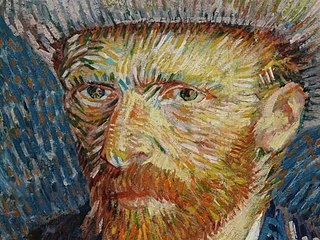Dreams have long been a subject of fascination, not only for their mysterious and often surreal nature but also for their potential to reveal deeper aspects of the human psyche. The study of dreams, which dates back to ancient civilizations, has evolved significantly with the advent of modern psychology and neuroscience. This article aims to provide a comprehensive overview of how dreams affect mental health. By examining the underlying mechanisms, including emotional regulation and memory consolidation, and exploring the therapeutic applications of dream analysis, we can appreciate the profound role that dreams play in our mental health. Through this exploration, we hope to highlight the potential of dreams as a valuable tool in psychological treatment and personal growth.
Theories of How Dreams Affect Mental Health
Freudian Theory
Freud suggested that the mind employs various mechanisms to repress distressing or socially unacceptable desires and thoughts. These repressed elements reside in the unconscious mind and are often disguised in dreams through symbols and metaphors. For instance, a dream about climbing a mountain might symbolize a person’s ambition or struggle in their waking life. By interpreting these symbols, psychoanalysts can uncover the latent content of the dream, revealing the hidden psychological conflicts and desires.
Repression
This process of uncovering and interpreting repressed material is crucial for mental health. Repression of emotions and conflicts can lead to psychological distress, manifesting as anxiety, depression, or other mental health disorders. Dreams provide a unique opportunity for these repressed elements to surface, offering insights that can be explored and resolved in therapy. This cathartic release can alleviate psychological symptoms and promote emotional healing.
Jungian Theory
Carl Jung, a contemporary and initially a close collaborator of Freud, developed his own theory of dreams that diverged significantly from Freud’s views. Jungian theory views dreams as an essential component of the individuation process, a journey toward achieving a harmonious and integrated self. In “The Structure and Dynamics of the Psyche” , Jung argued that dreams serve to balance the conscious and unconscious aspects of the psyche. Dreams, according to Jung, are not merely expressions of repressed desires but are also pathways to self-discovery and personal growth. They often contain archetypal symbols and narratives that can guide individuals through life’s psychological challenges and transitions
Individuation
Individuation, a central concept in Jungian psychology, refers to the process by which an individual integrates various aspects of the self into a cohesive whole. This process involves reconciling the conscious and unconscious parts of the psyche, allowing for a more balanced and authentic sense of self. Dreams play a crucial role in this process by bringing unconscious material to the forefront of consciousness, facilitating personal growth and self-awareness.
Symbolism
Dreams often present symbols and scenarios that reflect the dreamer’s inner conflicts, aspirations, and fears. By interpreting these symbols, individuals can gain insights into their unconscious motivations and unresolved issues. This increased self-awareness can lead to greater psychological well-being, as individuals become more attuned to their inner lives and better equipped to address their emotional needs.
Jung identified a series of universal symbols, known as archetypes, that appear in the dreams of individuals across different cultures and historical periods. These archetypes, which include figures such as the Hero, the Shadow, the Anima/Animus, and the Self, represent fundamental aspects of the human experience. Dreams that feature these archetypal symbols can provide profound insights into an individual’s psychological state and developmental stage.
Shadow Work
For example, encountering the Shadow in a dream may symbolize the confrontation with repressed aspects of the self that are deemed unacceptable or undesirable. This confrontation, while potentially unsettling, is a crucial step in the individuation process, as it encourages individuals to acknowledge and integrate these parts of themselves. By doing so, individuals can achieve a more balanced and complete sense of self, reducing internal conflicts and promoting mental health.
Contemporary Cognitive Theories
Modern cognitive theories of dreaming, such as those proposed by Antti Revonsuo and others, focus on the functional aspects of dreams in problem-solving and emotional regulation. In his evolutionary hypothesis of dreaming, Revonsuo suggests that dreams simulate threatening events and scenarios, providing a safe space for individuals to practice coping strategies and responses. This theory posits that dreaming has an adaptive function, helping individuals to prepare for real-life challenges. Additionally, contemporary research highlights the role of REM sleep and dreaming in processing emotions and consolidating memories. By allowing the brain to integrate emotional experiences and resolve conflicts, dreams contribute to psychological resilience and emotional well-being.
Empirical Research on How Dreams Affect Mental Health
Dreams have long been a subject of intrigue and study, offering glimpses into the complexities of the human psyche. Recent empirical research has shed light on how dreams affect mental health, revealing intricate links between dream content, psychological well-being, and various mental health disorders. This article delves into key studies that explore these connections, examining how dreams can influence our emotional state and overall mental health.
Dream Content and Psychological Well-being
In a seminal study, Rosalind Cartwright explored the relationship between dream incorporation and adaptation to stressful events. The research focused on individuals who had experienced significant life stressors, such as divorce or bereavement. Cartwright found that those who integrated elements of these stressors into their dreams exhibited better psychological resilience and adaptability. By processing these events in their dreams, individuals could confront and resolve emotional conflicts, thereby improving their mental health.
Key Findings
- Positive correlation between the incorporation of stress-related themes in dreams and effective adaptation to stress.
- Dream incorporation facilitated emotional processing and resolution, enhancing psychological resilience.
Nightmares and Mental Health Disorders
Nightmares are a common phenomenon, but their prevalence and impact on mental health can be particularly severe for individuals with certain psychological conditions. In their comprehensive review, Nielsen and Levin highlighted the significant association between nightmares and mental health disorders such as PTSD, anxiety, and depression. Their findings indicated that nightmares are not only a symptom but also a contributing factor to the severity of these disorders.
Key Findings
- High prevalence of nightmares among individuals with PTSD, anxiety, and depression.
- Nightmares exacerbate symptoms by disrupting sleep and increasing emotional distress.
Statistics
- Up to 80% of individuals with PTSD report recurrent nightmares.
- Nightmares affect 45-70% of those with anxiety disorders and 20-40% of those with depression.
Lucid Dreaming and Anxiety Reduction
Lucid dreaming, the practice of becoming aware that one is dreaming and potentially controlling the dream, has gained attention for its therapeutic potential. A meta-analysis by Stumbrys et al. (2013) evaluated the effectiveness of lucid dream induction techniques in reducing anxiety. The analysis revealed that lucid dreaming could significantly decrease anxiety symptoms, offering a sense of control and empowerment to the dreamer.
Key Findings
- Lucid dreaming techniques led to substantial reductions in anxiety levels.
- Participants who practiced lucid dreaming reported enhanced feelings of control over their dream experiences.
Statistics
- Some studies reported up to a 50% decrease in anxiety symptoms following lucid dream induction.
Mechanisms Influencing How Dreams Affect Mental Health
To understand how dreams influence mental health, it is essential to explore the underlying mechanisms. Research has identified several key processes through which dreams affect our psychological state: emotional regulation, memory consolidation, and neurobiological correlates.
Emotional Regulation
Walker and Van der Helm investigated the role of REM sleep in emotional brain processing. Their study highlighted that REM sleep facilitates the processing of emotional experiences, helping to regulate mood and emotional responses. This “overnight therapy” allows the brain to reprocess emotions without the heightened physiological arousal associated with wakefulness, thereby reducing the emotional intensity of distressing experiences.
Key Findings
- REM sleep plays a crucial role in emotional regulation.
- Processing of emotional experiences during REM sleep helps to attenuate their emotional impact, promoting mood regulation and emotional stability.
Memory Consolidation and Trauma Processing
Robert Stickgold focused on the role of REM sleep in the consolidation and processing of traumatic memories. REM sleep is essential for integrating new information, including emotional and traumatic experiences, into long-term memory. This process helps individuals contextualize and integrate traumatic memories, reducing their emotional impact and aiding in psychological recovery.
Key Findings
- REM sleep is vital for the consolidation and processing of traumatic memories.
- Effective integration of traumatic memories during REM sleep can mitigate their emotional impact and support trauma recovery.
Neurobiological Mechanisms at the Origin of How Dreams Affect Mental Health
Pierre Maque used neuroimaging techniques to explore the neurobiological correlates of dreaming. His research demonstrated that REM sleep is associated with increased activity in the limbic system, particularly the amygdala and hippocampus, which are crucial for emotional processing and memory. This heightened activity underscores the importance of REM sleep for emotional and cognitive functions essential for mental health.
Key Findings
- Neuroimaging studies show increased limbic system activity during REM sleep.
- Enhanced emotional processing and memory consolidation during REM sleep are critical for maintaining mental health.
If you wish to study your own dreams to understand how they affect your own mental health, use the Self: Dream Analysis app.


